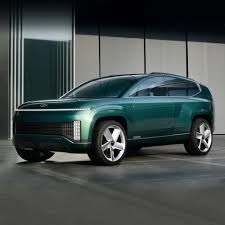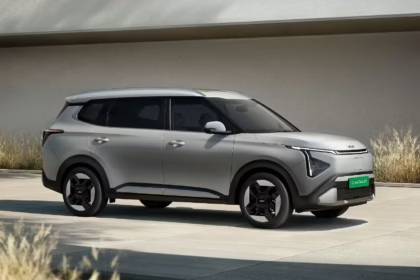Introduction
India is transforming in its mobility sector, with Electric Cars gradually shifting from a luxury to a future reality. Although high-end EVs from Tata, Hyundai, and MG already have a foothold, the true revolution is that of affordable EVs priced below Rs 5 lakhs, which are tailored for the average Indian home.
Why Electric Cars under Rs 5 lakhs are a mass adoption game-changer
- Accessibility for Middle-Class Families: The majority of Electric Cars in India now cost more than Rs 10 lakhs, keeping them out of the reach of the typical buyer.
- Affordable Electric Cars priced below Rs 5 lakhs narrow this gap, making clean mobility accessible to middle-class families.
- Boost in Electric Cars Penetration: Lower price points encourage quicker adoption, directly benefiting India’s goal to reach 30% of its Electric car sales by 2030.
- Ideal for City Commuters: Office-goers, students, and small business owners can utilize daily travel of up to 30–50 km in cities, making 150–200 km range budget Electric Cars an ideal choice for them.
- Change in Buyer Attitude: When EVs are priced equal to petrol hatchbacks, customers begin viewing them as value-for-money options instead of costly experiments.
Government Impetus: FAME II, Subsidies on Electric Cars, State Government Incentives
- FAME II Scheme: The Government provides incentives up to Rs 10,000–Rs 15,000 per kWh for EVs, slashing initial costs sharply.
- GST Reduction: EVs attract a mere 5% GST, whereas petrol/diesel vehicles attract 28%, making the former drastically cheaper.
- State-Level Benefits: Delhi, Maharashtra, Gujarat, and Karnataka offer extra subsidies (up to Rs 1.5 lakhs), free registration, and road tax exemptions.
- Infrastructure Push: Investing in public charging points and battery-swapping stations makes it easy for even low-end EV owners to find charging points.
- Loan & EMI Support: Banks and states are providing low-interest loans for EV purchases, further reducing the entry barrier for first-time buyers.
Affordable Electric Cars in India
India’s EV sector is focusing on expanding clean mobility to a broader audience. In the sub-Rs 5 lakh category, there are quite a few new-age and affordable models available or imminent, varying from small micro-cars to well-established hatchbacks revamped as Electric Cars. While a few are already on the road, others are in line to redefine city commuting by focusing on affordability, usability, and sustainability.
Overview of Low-Cost Electric Cars Available in the Market Currently
- PMV EaS-E – A tech-enabled micro-EV by Mumbai startup PMV Electric, priced at about Rs 4.79 lakh (ex-showroom), with a range of ~160 km and speed of ~70 km/h; designed for tight city mobility and a full-feature list.
- Strom Automotive R3 – A three-wheeled electric car (~Rs 4.5 lakh), providing ~200 km range, ~80 km/h top speed, and for cramped city spaces with a futuristic design and reasonable boot space
- Mahindra Reva i (e2o) – One of the first attempts in India’s EV journey, this small hatchback is no longer made but still on sale in the used market under Rs 5 lakh. Provides a humble 80–120 km range.
Top Models Under or Around Rs 5 Lakhs Electric Cars
- PMV EaS-E – ~Rs 4.79 lakh; range ~160 km; top speed ~70 km/h; strikes the perfect balance between urban use and intelligent features
- Strom Motors R3 – ~Rs 4.5 lakh; range ~200 km; top speed ~80 km/h; ranges ahead with quirky urban design
- Mahindra Reva i (e2o) – ~Rs 3.8–4.2 lakh second-hand; range 80–120 km; an affordable way to go EV
- Tata Tiago EV (Base) – Around Rs 4.99 lakh after subsidies; features a 250 km MIDC-claimed range and strong build quality.
- MG Comet EV – Approximately Rs 4.99 lakh (on-road in certain cities); range ~230 km; positioned as a compact, feature-packed hatchback below Rs 5 lakh
- Tata Nano EV (Jayem Neo, coming soon) – Expected at ~Rs 4–5 lakh; expected range ~140–170 km; a re-born legendary compact in EV form
Entry-Level Electric Cars by Tata, Mahindra, MG, and New Startups
Tata Motors:
- Tata Tiago EV—affordable entry-level hatchback with aggressive pricing (~Rs 4.99 lakh ex-showroom with subsidies), good range (250 km), and safety features
- Tata Nano EV (Jayem Neo)—coming compact EV to revive the Nano brand, set to target ultra-affordability below Rs 5 lakh.
Mahindra:
- Mahindra Reva i (e2o)—aged EV model still in the used market, providing an inexpensive entry to electric mobility (Rs 3.8–4.2 lakh) with modest range—perfect for short urban chores
MG (SAIC-GM-MG):
- MG Comet EV—a young, small electric hatchback, priced at ~Rs 4.99 lakh in some cities, with ~230 km range and digital cockpit charm
Startups:
- PMV EaS-E—a savvy microcar from PMV Electric, with tech-enabled features, city-focused range, and price (~Rs 4.79 lakh).
- Strom Motors R3—a three-heeled Strom Motors EV, one of the longest ranges (~200 km) under the Rs 5 lakh category, with a bold styling
Electric Cars Benefit
Electric Cars offer a range of economic and ecological benefits. For those contemplating an EV priced below Rs 5 lakhs, the advantage is also more enticing, as they combine affordability with substantial savings.
Lower Running Costs
- EVs operate at a cost of only Rs 1–Rs 1.5 per km, compared to Rs 6–Rs 8 per km for petrol vehicles.
- Home-charging of a small EV typically costs Rs 80–Rs 120, providing a range of 120–200 km.
- Massive savings for office-goers and small business people who commute daily.
Low Maintenance
- No engine oil, no clutch, and fewer moving parts than petrol/diesel cars.
- Fewer breakdowns and longer maintenance intervals.
- The cost of ownership decreases substantially within 5 to 7 years.
Ecological Mobility
- Zero tailpipe emissions, lowering urban air pollution.
- Each Electric Cars reduces carbon footprint versus fossil fuel cars.
- Aids India’s aspiration to lower dependence on crude oil imports.
Government Incentives & Subsidies
- Central and state subsidies reduce the initial purchase price.
- Tax exemption, lowered road tax, and registration fee exemption.
- Lower-cost financing and EMI solutions launched by banks and NBFCs.
Smooth & Silent Driving Experience
- Instant torque delivery enables Electric Cars to accelerate faster at lower speeds.
- Quiet cabin provides comfort, particularly in city traffic.
- Small budget EVs are more convenient to handle in heavy traffic and narrow parking areas.
Future-Ready Mobility
- With the increasing number of charging points, Electric Cars are becoming increasingly sensible.
- Early ownership of Electric Cars gives buyers a head start in following future mobility trends.
- The resale of Electric Cars is expected to increase as demand strengthens.
Upcoming Electric Cars in India Under Rs 5 Lakhs
The actual buzz in India’s EV story is about the next wave of affordable electric vehicles. While premium Electric Cars have already made some headway, players are now competing to introduce mini, cheap, and mass-market Electric Cars in the sub-Rs five lakhs segment. These vehicles will focus on first-time owners, office goers who drive daily, and small families seeking a sustainable yet affordable option. The coming 1–2 years will witness a wave of such launches, with Tata, Mahindra, and new-generation startups leading the way.
List of Upcoming Electric Cars Under Rs 5 Lakhs
Tata Nano EV (Jayem Neo)
- Expected price: Rs 4–5 lakh
- Expected range: 150–200 km
- Resurrects the legendary Tata Nano in an all-electric form, aimed at entry-level city buyers.
- The tiny design is best suited for Indian city traffic and short drives.
MG Comet EV Lite (Affordable Variant)
- Expected price: Around Rs 4.9–5 lakh (with subsidies)
- Range: 200–230 km
- Cut-price version of the MG Comet for young car owners and small families.
- Digital goodies, small size, and upscale cabin at entry-level pricing.
Mahindra Reva NXT
- Expected price: Rs 4.5–5 lakh
- Range: 120–160 km
- Revised on the iconic Reva i (India’s first electric vehicle), now with improved range and new features.
- Small 4-seat layout ideal for daily city driving.
PMV EaS-E Plus (Next Variant)
- Expected price: Rs 4.7–5 lakh
- Range: 180–200 km
- A new generation of the current PMV EaS-E with improved performance and amenities.
- Targeted at intelligent mobility with app integration and safety features.
Strom Motors Compact EV (Future Model)
- Approximate price: Around Rs 4.8–5 lakh
- Range: 200+ km
- Strom Motors is going to introduce a 4-seater compact EV following the success of its R3 microcar.
- Targeted at urban young drivers, this vehicle features a futuristic design and a digital dashboard.
Electric Cars Price in India
The cost of electric vehicles in India is critical to their adoption. Although luxury Electric Cars, such as the Tata Nexon EV and MG ZS EV, are a wish list item for the masses, the actual impetus towards mass adoption is provided by affordable EVs priced under Rs 5 lakhs.
These vehicles can be priced affordably without compromising on utility for daily driving. With state subsidies, lower GST, and government incentives, the effective on-road cost of most entry-level Electric Cars is decreasing towards that magic Rs 5 lakh figure, making them affordable to middle-class households.
Detailed Breakdown of Electric Cars Pricing in India
Ex-Showroom Price
- The starting price of budget Electric Cars ranges from Rs 4 lakh to Rs 6 lakh.
- Startups such as PMV and Strom Motors plan to remain below Rs 5 lakh to tap city-commuter markets.
Government Subsidies & Incentives
- The Central FAME II subsidy provides Rs 10,000–15,000 per kWh of battery capacity.
- State subsidies (Delhi, Gujarat, Maharashtra, Karnataka) also reduce the price by Rs 30,000–1.5 lakh.
- This effectively brings down the cost of entry-level Electric Cars by 15–20%.
GST Advantage
- Electric vehicles are charged with only 5% GST, whereas petrol/diesel cars are charged 28% + cess.
- This directly impacts by almost Rs 50,000–Rs 1 lakh in on-road cost.
On-Road Price vs Ex-Showroom
- Although ex-showroom price can be below Rs 5 lakh, on-road prices marginally creep beyond due to insurance and accessories.
- Yet, subsidies and road tax exemptions (in most states) bring the effective cost down to around Rs 5 lakh.
Financing & Loan Options
- Several banks and NBFCs are offering low-interest EV loans with EMI schemes ranging from Rs 3,000 to Rs 4,500/month.
- Income tax relief under Section 80EEB for loan interest (up to Rs 1.5 lakh) can also be availed by EV buyers.
Best Electric Cars Under Rs 5 Lakhs
The EV market is finally opening up with a range of interesting options. These cars are small, city-centric, and built to cater to Indians’ daily commuting needs. Ranging from startups experimenting with microcars to mainstream brands re-launching their old hatchbacks, competition is intensifying in this market.
MG Comet EV Lite (Value Version)
- Price: ~Rs 4.9–5 lakh (with incentives)
- Range: 200–230 km
- A limited version of MG’s fashionable Comet, optimized for cost.
- Ideal for young customers seeking a premium yet affordable EV.
Electric Cars Range
The most significant concern for Indian consumers when deciding on an EV. For Electric Cars priced below Rs 5 lakhs, the daily commute rather than highway drives is the primary concern. The majority of these vehicles are tuned for city driving, which is what the average Indian does, covering a distance of 30–50 km a day. With ranges between 120 km and 230 km, these small Electric Cars can easily cover a week’s worth of urban commuting on a single 2–3 full charge.
Mahindra Reva NXT (New)
- Range: 120–160 km
- primarily designed for short city drives; ideal for metro cities.
MG Comet EV Lite (Low-Cost Variant)
- Range: 200–230 km (claimed)
- Practical ~180–200 km in typical city driving.
Things That Impact EV Range
- Driving Habits – Hard acceleration cuts range; smoother driving enhances it.
- Using AC & Electronics – Excessive use of AC or infotainment can reduce range by 10–15%.
- Traffic & Terrain – Stop-and-go traffic or hills lower efficiency.
Electric Cars Charging
Charging infrastructure is the most crucial component for EV companies that are striving to make charging uncomplicated, cost-effective, and easily accessible for city commuters. The majority of these Electric Cars have small battery packs, making home charging convenient while still maintaining public charging stations for extended drives.
AC Slow Charging at Home
- Most compact entry-level EVs can be charged from a standard 15A household socket.
- It takes approximately 5–8 hours to charge, depending on the battery’s capacity.
- The cost per unit (Rs 7–Rs 10) translates to a full charge of typically Rs 70–Rs 120.
- Perfect for overnight charging—charge at night, travel during the day.
Public Charging Stations (Fast Charging)
- Public DC fast chargers are expanding rapidly in metropolitan areas and Tier-2 cities.
- Can fill an EV battery from 20% to 80% level in 45–60 minutes.
- Costs more than home charging—typically Rs 200–Rs 400 per full charge.
- Ideal for intercity travel or situations where on-the-go charging is necessary.
Battery Swapping
- Some startups are testing battery-swapping models for micro EVs.
- Rather than waiting for charging, customers can swap an empty battery for a charged one.
- May accelerate EV adoption in shared mobility and commercial fleets.
Charging Time Breakdown (Affordable EVs)
- Tata Nano EV (Jayem Neo): 4–5 hours (home AC), 60 mins (fast charger).
- PMV EaS-E: 3–4 hours (home), 50 mins (fast charger).
- Strom Motors R3: 3 hours (home), 45 mins (fast charger).
- Mahindra Reva NXT: 5–6 hours (home), 1 hour (fast charger).
- MG Comet Lite: 5–6 hours (at home), ~60 minutes (fast charger).
Cost of Charging vs Petrol Cars
- Electric Cars: Rs 1–Rs 1.5 per km running cost.
- Petrol Cars: Rs 6–Rs 8 per km.
- For a ~1,000 km monthly commute, EV owners pay just Rs 1,200 compared to Rs 6,500–Rs 8,000 in petrol.
Electric Car Subsidy in India
Electric Cars priced below Rs 5 lakhs are becoming viable for middle-class consumers. The central government and state governments are providing financial assistance to lower the price of electric vehicles. It not only reduces the initial cost of purchase but also helps instill buyer confidence, as it reflects a long-term commitment to adopting Electric Cars.
Central Government Benefits (FAME II Scheme)
- Subsidy on Battery Capacity – Rs 10,000–Rs 15,000 per kWh of battery capacity for electric vehicles.
- Direct Price Reduction – Reduces the initial price of EVs by Rs 50,000–Rs 1.5 lakh based on the model.
- GST Benefit – 5% GST on EVs versus 28% + cess on petrol/diesel vehicles.
- Income Tax Allowances – Purchasers are eligible to claim a Rs 1.5 lakh deduction on EV loan interest under Section 80EEB.
State-Level Subsidies & Incentives
Delhi
- Rs 10,000 subsidy per kWh (up to Rs 1.5 lakh).
- State-level subsidies provide 100% exemption from road tax and registration fees.
- Scrapping incentive for old petrol/diesel cars in addition to the above.
Maharashtra
- Minimum subsidy: Rs 5,000 per kWh (up to Rs 1.5 lakh).
- Early bird discount of Rs 1 lakh for early adopters.
- Exemption of registration charges.
Gujarat
- Rs 10,000 per kWh (up to Rs 1.5 lakh).
- Aggressive state EV policy of 2 lakh EVs by 2025.
Karnataka
- Exemption of road tax and registration fee.
- State incentives for EV manufacturing to bring down overall vehicle prices.
Telangana, Tamil Nadu, Kerala
- Paralleled incentives with tax holidays, registration relief, and charging infrastructure support.
Total Impact on EV Pricing
- Subsidies: Budget EVs cost between Rs 5.5 lakh and Rs 6.5 lakh.
- Subsidies: Effective price lowers to Rs 4–5 lakh.
- Example: PMV EaS-E (Rs 6 lakh base) → After FAME II + state subsidy → ~Rs 4.8 lakh on-road in Delhi or Gujarat.
Electric Cars Under Rs 5 Lakhs
| Model | Price (Ex-Showroom, After Subsidy) | Range (km) | Battery Pack | Charging Time (Home AC) | Seating Capacity | Key Highlights |
| Tata Nano EV (Jayem Neo) | Rs 4.5–5 lakh (expected) | 150–200 | 19 kWh | 4–5 hours | 4 | Revival of the Nano brand, ultra-compact design |
| PMV EaS-E | Rs 4.79 lakh | 160 | 10 kWh | 3–4 hours | 2+1 | India’s first smart microcar, app connectivity |
| Strom Motors R3 | Rs 4.5–4.9 lakh | 200 | 13 kWh | 3 hours | 2 | Futuristic 3-wheeler, digital dashboard |
| Mahindra Reva NXT | Rs 4.8–5 lakh (expected) | 120–160 | 15 kWh | 5–6 hours | 4 | Modern comeback of India’s first EV |
| MG Comet EV Lite | Rs 4.9–5 lakh (expected) | 200–230 | 17 kWh | 5–6 hours | 4 | Compact hatchback, premium digital features |
FAQs
Q1. What is the lowest-priced electric vehicle in India in 2025?
The PMV EaS-E is presently the least expensive, costing around Rs 4.79 lakh (ex-showroom). Other affordable EVs, such as the Tata Nano EV and Strom R3, are also on their way to this price range.
Q2. What is the typical driving range of EVs priced below Rs 5 lakhs?
The majority of budget EVs in this segment offer a range of 120–200 km per charge, which is sufficient for daily city driving.
Q3. How long does it take to charge the cars in the home?
Charging from a standard 15A home socket typically takes 6 hours, depending on the model and battery capacity.
Q4. Can I charge the cars at public charging points?
Yes. All budget EVs offer public DC fast-charging support, which charges the battery up to 80% in approximately 45–60 minutes.
Q5. What are the government subsidies offered on these vehicles?
With the FAME II scheme and state EV incentives, buyers can receive up to Rs 1.5 lakh, along with exemptions from road tax and registration in most states.
Q6. Can budget EVs be driven on highways safely?
Although primarily used for urban driving, range models such as the Strom R3 and MG Comet Lite, with a range of over 200 km, can cover brief highway excursions; however, regular fast charging would be necessary to maintain their range.
Q7. How expensive is it to travel per km in an EV versus petrol vehicles?
EVs cost around Rs 1–Rs 1.5 per km, while petrol vehicles cost around Rs 6–Rs 8 per km, making EVs almost 5–6 times more economical to operate.
Q8. What is the best EV under Rs 5 lakhs for a family?
The Tata Nano EV and MG Comet EV Lite are the most convenient options, with a 4-seat capacity, making them well-suited for small families.
Conclusion
India’s electric mobility story is entering a new era, one of affordability and innovation. Electric vehicles are now within Rs 5 lakhs, and the aspiration of owning one is no longer the preserve of premium buyers—it’s within the reach of the middle-class Indian household. For urban dwellers who commute daily, these affordable EVs offer unbeatable benefits—low operating costs, hassle-free home charging, and zero emissions.
As the new models from Tata, Mahindra, MG, and startups take over the roads, competition will only make technology advance further, resulting in improved range, quicker charging, and more innovative features at affordable prices.
EVs are no longer the future; they are here now. For anyone considering purchasing their first electric vehicle without emptying their wallets, the sub-Rs 5 lakh segment is the ideal place to start a part of India’s clean mobility revolution.





